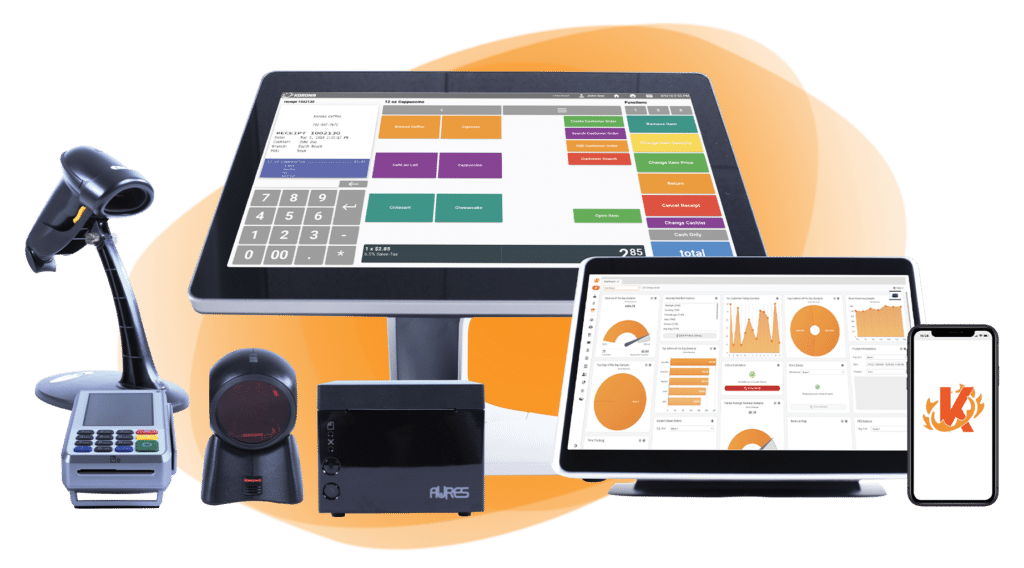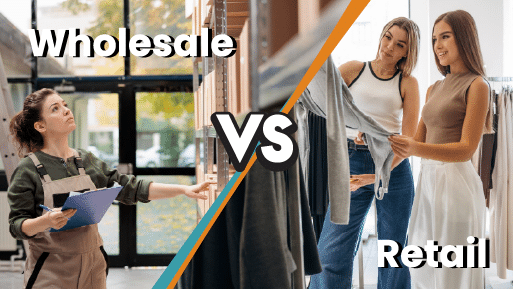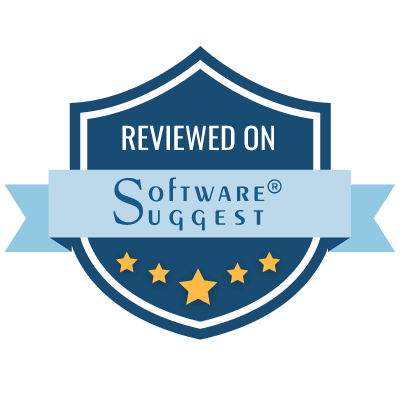Starting a product-based business might have you wondering: Should I go wholesale or retail? The answer lies in who you’re selling to and in what quantity.
In this guide, we’ll explain the nuances of each model, the key differences between them, and how to decide which is right for you. We’ll also walk through costs, customer experience, and inventory management so you can make a confident choice.
Key Takeaways:
- Wholesale involves selling in bulk to businesses, while retail involves selling goods directly to consumers, usually in smaller quantities.
- Operation costs, pricing strategies, and customer relationships differ significantly between wholesale and retail models.
- The right choice depends on your business goals, target market, and operational capacity.
What Is The Main Difference Between Wholesale And Retail?
The primary distinction is simple: wholesale refers to selling products in bulk to other businesses, often for resale, while retail involves selling directly to end consumers, typically in smaller quantities. Wholesale prioritizes scale, while retail emphasizes experience and marketing.
What Is Wholesale?
Wholesale is the practice of selling goods in large quantities to businesses like retailers, institutions, or other wholesalers. Prices per unit are lower due to bulk purchasing from wholesale suppliers, and profit is made through volume.
What Is Retail?
Retail is the sale of products directly to individual consumers for personal use. Retailers can often buy from wholesalers and mark up the price to include marketing, staffing, and operational costs.
Other Differences Between Wholesale And Retail
In addition to the points mentioned above, we also see variations in price, customer experience focus, competition intensity, and product control. Here are the additional differences between wholesale and retail:
↪ Wholesale vs. retail customer experience
- Wholesale interactions focus on business-to-business (B2B) efficiency, contracts, and order fulfillment.
- Retail prioritizes personalized customer service, merchandising, and store design that enhances the customer experience.
↪ Wholesale vs. retail: price of goods sold
- Wholesale generally offers products at a much lower price, so retailers can buy in large quantities.
- Retail involves marking up prices for profit and overhead.
↪ Wholesale vs. retail: operation costs
- Wholesale involves fewer customer-facing costs but higher warehousing needs. You’ll also need a wholesale license should you go this route.
- Retail incurs higher costs due to marketing, rent, and staffing.
↪ Wholesale vs. retail: location
- Wholesalers operate from warehouses, typically in industrial zones.
- Retailers must choose strategic locations with high foot traffic.
Wholesale Vs. Retail: Comparison Table
Category | Wholesale | Retail |
Customer Type | Other businesses (B2B) | Individual consumers (B2C) |
Sales Volume | High-volume, bulk orders | Low-volume, single sales |
Pricing | Lower unit cost, volume-based discounts | Higher unit price, markup for profit and expenses |
Profit Margin | Lower per unit | Higher per unit |
Location | Warehouses, industrial zones | High-traffic retail areas, online shops |
Marketing Strategy | Trade shows, B2B outreach, contracts | Direct advertising, promotions, social media |
Tools Required | Warehouse management systems, bulk shipping tools | POS systems, customer-facing platforms |
Primary Startup Costs | Inventory and storage | Customer service, marketing, and location |
Wholesale or Retail: Which One Is More Appropriate For You?
Before you become a retailer or get into wholesale, you need to understand the ins and outs of each business. So let’s take a closer look at the benefits and challenges to help guide your decision.
Why wholesaling might be good for you
Pros of wholesale
- Lower marketing and customer service costs
- Steady revenue from recurring B2B clients
- Simplified sales process
Cons of wholesale
- Lower margins per unit
- Dependence on fewer, large buyers
- High upfront costs for inventory and warehousing
Pros | Cons |
Lower marketing and customer service costs | Lower margins per unit |
Steady revenue from recurring B2B clients | Dependence on fewer, large buyers |
Simplified sales process | High upfront costs for inventory/warehousing |
Why retailing might be good for you
Pros of retailing
- Higher net profit margins
- Direct connection with consumers
- Easier to build brand loyalty
Cons of retail
- Higher operating costs
- More competition and demand for marketing
- Customer service demands
Pros | Cons |
Higher profit margins | Higher operating costs |
Direct connection with consumers | More competition and demand for marketing |
Easier to build brand loyalty | Customer service demands |
Pros and Cons of Wholesale
Choosing wholesale can streamline your business but comes with volume and logistics challenges.
↪ Pros
- Bulk sales reduce time per transaction
- Less emphasis on marketing and store experience
- Easier to predict demand with B2B contracts
↪ Cons
- Requires warehouse and storage space
- May need to extend credit to retailers
- Lower margins per sale
Pro tip:
Building strong relationships with suppliers plays a big role in overcoming these challenges, especially when navigating wholesale supplier options tailored for resellers.
Pros and Cons of Retail
Retail offers visibility and customer loyalty, but it’s competitive and labor-intensive.
↪ Pros
- Higher per-unit profit
- More control over customer experience and branding
- Flexibility to test products in the market
↪ Cons
- Higher startup and operational costs
- Requires staff, marketing, and POS systems
- Sensitive to seasonality and consumer trends
Pro tip:
Retailers benefit from using a retail dictionary, staying up on key performance indicators (KPIs), or exploring the best inventory management software on the market.
Which Model is Best for You?
Taking the following steps can lead to a better understanding of how to start a wholesale vs. retail business.
Step #1: Define your goals
Are you aiming for high volume or high margins? Wholesale is better for scale, while retail is better for branding and customer relationships.
Step #2: Evaluate your resources
Do you have storage for bulk items or a location for a storefront? Your infrastructure will determine your fit.
Step #3: Consider your market
Are you better positioned to sell to businesses or consumers? This will guide your marketing, pricing, and logistics decisions.
KORONA POS has exceeded my expectations in every way. It’s a powerful, adaptable solution that has transformed our operations for the better.
-James B.
What Is More Profitable Between Wholesale And Retail?
Whether you’re a wholesaler or a retailer, profit depends on your pricing, strategy, and target market. Retail often has higher profit margins, but wholesale can yield more consistent sales volume.
Is It Possible to Run Both Wholesale and Retail?
Yes, it is possible to run both wholesale and retail. Many businesses adopt a hybrid model, acting as both wholesaler and retailer.
This allows them to tap into multiple revenue streams and adapt to market trends. You’ll need robust inventory management systems that handle both B2B and B2C sales.

KORONA POS Makes Managing Both Wholesale & Retail Easy
Choose wholesale, retail, or both—whatever your model, you need the right tools! KORONA POS powers your inventory, accounting, and customer tracking to simplify your wholesale or retail business at every level.
Ready to scale your operations? Explore the KORONA POS solutions that make managing both models a breeze.
Get started with KORONA POS today!
Explore all the features that KORONA POS has to offer with an unlimited trial. There’s no commitment or credit card required.
Frequently Asked Questions (FAQs)
How does pricing strategy differ between wholesale and retail?
Wholesale pricing focuses on volume discounts and lower per-unit prices while retail accounts for consumer demand, competition, and operational costs.
What kind of POS system supports both wholesale and retail?
A flexible, cloud-based POS system like KORONA POS supports multiple pricing levels, customer types, and order workflows, making it ideal for wholesale and retail models.
How do marketing strategies differ between wholesale and retail?
Wholesale marketing leans toward relationship-building, B2B networking, and trade shows, whereas retail marketing focuses on direct consumer engagement, social media, and brand storytelling.












